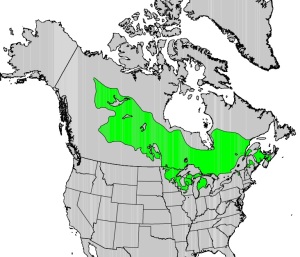You may have already heard that carbon dioxide concentrations have surpassed 400 ppm. The most famous monitoring station, Mauna Loa Observatory in Hawaii, reached this value on May 9th. Due to the seasonal cycle, CO2 levels began to decline almost immediately thereafter, but next year they will easily blow past 400 ppm.
Of course, this milestone is largely arbitrary. There’s nothing inherently special about 400 ppm. But it’s a good reminder that while we were arguing about taxation, CO2 levels continued to quietly tick up and up.
In happier news, John Cook and others have just published the most exhaustive survey of the peer-reviewed climate literature to date. Read the paper here (open access), and a detailed but accessible summary here. Unsurprisingly, they found the same 97% consensus that has come up over and over again.
Cook et al read the abstracts of nearly 12 000 papers published between 1991 and 2011 – every single hit from the ISI Web of Science with the keywords “global climate change” or “global warming”. Several different people categorized each abstract, and the authors were contacted whenever possible to categorize their own papers. Using several different methods like this makes the results more reliable.
Around two-thirds of the studies, particularly the more recent ones, didn’t mention the cause of climate change. This is unsurprising, since human-caused warming has been common knowledge in the field for years. Similarly, seismology papers don’t usually mention that plate tectonics cause earthquakes, particularly in the abstracts where space is limited.
Among the papers which did express a position, 97.1% said climate change was human-caused. Again, unsurprising to anyone working in the field, but it’s news to many members of the public. The study has been widely covered in the mainstream media – everywhere from The Guardian to The Australian – and even President Obama’s Twitter feed.
Congratulations are also due to Andrew Weaver, my supervisor from last summer, who has just been elected to the British Columbia provincial legislature. He is not only the first-ever Green Party MLA in BC’s history, but also (as far as I know) the first-ever climate scientist to hold public office.
Governments the world over are sorely in need of officials who actually understand the problem of climate change. Nobody fits this description better than Andrew, and I think he is going to be great. The large margin by which he won also indicates that public support for climate action is perhaps higher than we thought.
Finally, my second publication came out this week in Climate of the Past. It describes an EMIC intercomparison project the UVic lab conducted for the next IPCC report, which I helped out with while I was there. The project was so large that we split the results into two papers (the second of which is in press in Journal of Climate). This paper covers the historical experiments – comparing model results from 850-2005 to observations and proxy reconstructions – as well as some idealized experiments designed to measure metrics such as climate sensitivity, transient climate response, and carbon cycle feedbacks.



